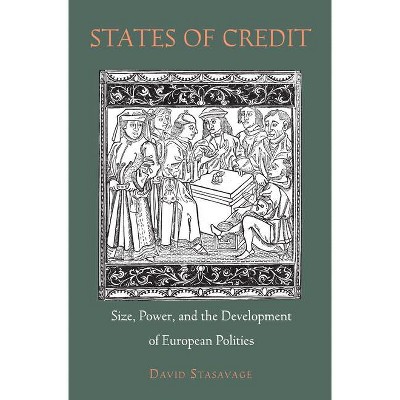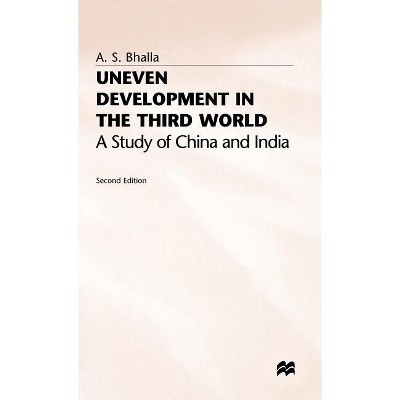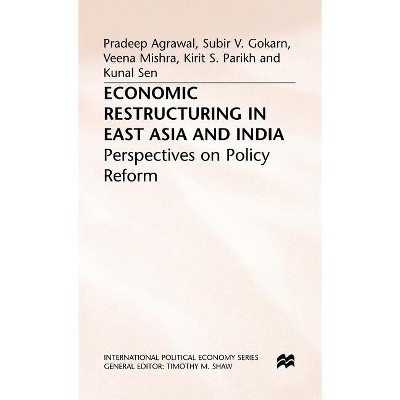Sponsored

Rural Credit in Western India 1875-1930 - by I J Catanach (Paperback)
$39.99
In Stock
Eligible for registries and wish lists
Sponsored
About this item
Highlights
- Rural Credit in Western India, 1875-1930: Rural Credit and the Co-operative Movement in the Bombay Presidency by I. J. Catanach examines how colonial officials and Indian peasants alike grappled with the problem of indebtedness in one of British India's most diverse provinces.
- Author(s): I J Catanach
- 286 Pages
- Business + Money Management, Development
Description
Book Synopsis
Rural Credit in Western India, 1875-1930: Rural Credit and the Co-operative Movement in the Bombay Presidency by I. J. Catanach examines how colonial officials and Indian peasants alike grappled with the problem of indebtedness in one of British India's most diverse provinces. Sparked by the Deccan Riots of 1875 and culminating in the Co-operative Societies Act of 1904, the movement to reform rural credit was part of a broader effort to regulate moneylenders, stabilize agriculture, and experiment with state-led "development." Drawing on government archives, bank records, newspapers, and the occasional village- or society-level narrative, Catanach situates the cooperative experiment in the wider political economy of Gujarat, the Bombay Deccan and Konkan, and the Bombay Karnatak. The book highlights both the administrative politics--between the India Office and Government of India, Bombay Secretariat and Poona Registrars--and the social dynamics that shaped cooperatives' fortunes. Caste, often more powerful than the village, proved central to their success or failure; caste associations and even strands of nationalism, especially in Gujarat, intersected with cooperative activity. Profiles of the Registrars, many drawn from the Indian Civil Service, reveal a mix of eccentric innovators and pragmatic bureaucrats attempting to encourage "democratization" through non-official leadership. By 1930, as the Depression and protectionist measures transformed the economic landscape, the cooperative movement's limited achievements raised enduring questions: were they undermined by Indian society's inertia or by the unsuitability of a Rhineland model transplanted to western India? Catanach's analysis makes the history of rural credit a lens on colonial governance, peasant politics, and the early origins of developmental thought. This title is part of UC Press's Voices Revived program, which commemorates University of California Press's mission to seek out and cultivate the brightest minds and give them voice, reach, and impact. Drawing on a backlist dating to 1893, Voices Revived makes high-quality, peer-reviewed scholarship accessible once again using print-on-demand technology. This title was originally published in 1970.Dimensions (Overall): 9.0 Inches (H) x 6.0 Inches (W) x .64 Inches (D)
Weight: .92 Pounds
Suggested Age: 22 Years and Up
Number of Pages: 286
Genre: Business + Money Management
Sub-Genre: Development
Publisher: University of California Press
Theme: Economic Development
Format: Paperback
Author: I J Catanach
Language: English
Street Date: July 30, 2021
TCIN: 1006745723
UPC: 9780520327818
Item Number (DPCI): 247-16-7929
Origin: Made in the USA or Imported
If the item details aren’t accurate or complete, we want to know about it.
Shipping details
Estimated ship dimensions: 0.64 inches length x 6 inches width x 9 inches height
Estimated ship weight: 0.92 pounds
We regret that this item cannot be shipped to PO Boxes.
This item cannot be shipped to the following locations: American Samoa (see also separate entry under AS), Guam (see also separate entry under GU), Northern Mariana Islands, Puerto Rico (see also separate entry under PR), United States Minor Outlying Islands, Virgin Islands, U.S., APO/FPO
Return details
This item can be returned to any Target store or Target.com.
This item must be returned within 90 days of the date it was purchased in store, shipped, delivered by a Shipt shopper, or made ready for pickup.
See the return policy for complete information.
Trending Non-Fiction


$18.28
was $19.58 New lower price
4.7 out of 5 stars with 17 ratings
















